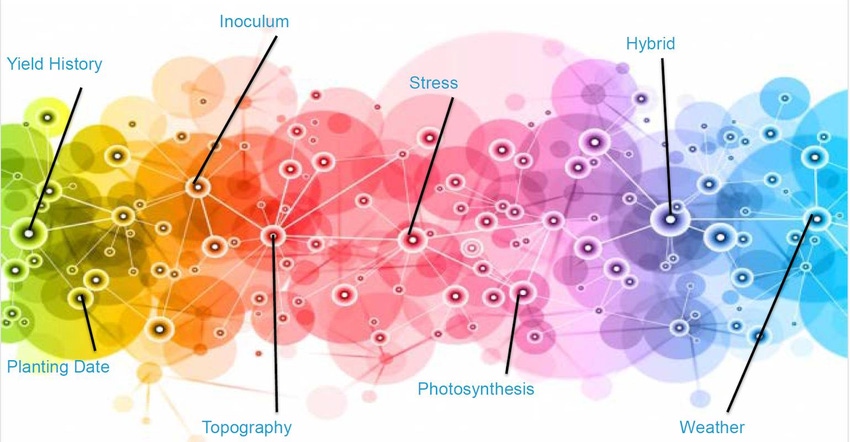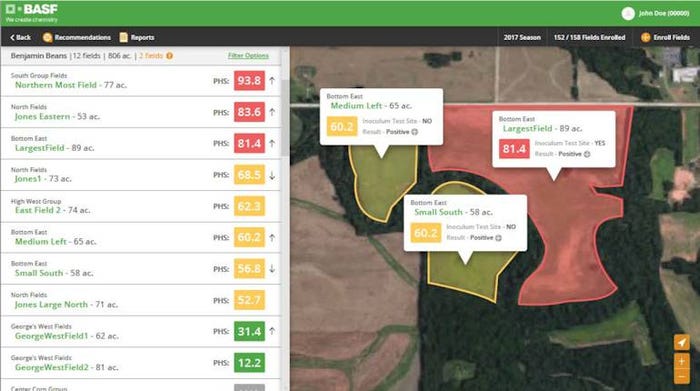March 3, 2017

The concept of crop modeling isn't new, it's an idea that's getting increasing attention however as gathering in-field information becomes easier. Farm Industry News recently featured an in-depth look at the issue, and work continues in the industry.
During Commodity Classic, BASF shared some advance work – a kind of sneak peek – at a new tool the company is testing in the field. It's a kind of "plant health model" that could someday help farmers identify which fields are most in need of a fungicide application. Sounds simple, but in fact the work behind the scenes is complicated.
Megan Andriankaja, tech marketing manager, BASF, explained that the company has worked to create a set of plant health algorithms. This is heavy-lifting math that can make sense of a lot of data to help with decision making. She used the GPS guide in your car as an example. You tell this tool where you want to go and a set of algorithms that work with roads, perhaps traffic, and other conditions, to generate the most efficient route.
"What we've done is develop a GPS system to navigate the plant health response," she explained. "We want to help the farmer identify the right acre for the right plant health application."
BASF launched Maglis last year during Commodity Classic. It's the company's first foray into digital farming and this new plant health modeling tool will work inside the platform, according to Adriankaja.
She explained that getting to this level of decision-making help isn't easy, when you figure in all the information you need to make the application decision. The idea, however, is to make the decision and apply before disease appears in your field.
"The first question you have to ask is 'are there disease spores present?' in the field," Adriankaja said. "Of course, a farmer can't simply go look for spores, they're microscopic. Farmers don't know they have a risk until they see disease symptomology develop and then it's too late."
BASF has come up with a diagnostic tool. Using a cotton swab in the field to capture material, and put it through the system they can identify if disease spores are present. In addition, they can know if these are spores for disease that may be resistant to a specific mode of action, she said. "And we can determine the best management approach to mitigate the resistance risk," she added.
Pulling a lot of information together
Just knowing spores are present is just a start. The model BASF is finalizing pulls in weather information to judge risk factors like drought, heat, rain and a range of other factors. From this information, Adriankaja said the goal would be to build a personalized plan in season that takes the data and integrates it into a more personalized approach for what could or should be done on that acre.
"This is in season, this is not looking at the past," she emphasized. "As the microclimate changes in the field we can get [farmers] a live feed on that acre and determine where the greatest risks lie, and help mitigate that."

The plant health tool from BASF would provide farmers with a 'dashboard' to see which fields may rate an application sooner rather than later. In this example, red does mean consider some action.

The system will provide a dashboard of each field providing risk ratings to help determine the need for application. "We will develop a specific plant health score for each field and help determine the level of urgency for the field," Adriankaja said.
The dashboard doesn't simply provide an index, but also shows the farmer where the score comes from with information on what data went into developing that application score. "We're helping growers see the value plant health is bringing to their specific operation. We're making plant health tangible and we're really excited about it," she said.
The tool remains under development with active field testing going on through the company's Innovation Specialists in the field in 2017. Adriankaja noted that the company wants to bring this tool to market soon, but at this time there's no firm date for the launch.
About the Author(s)
You May Also Like






